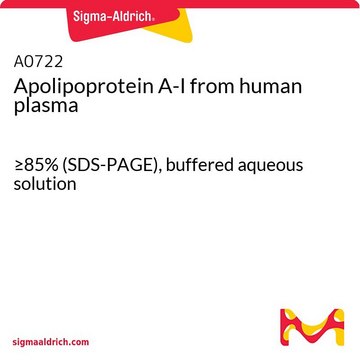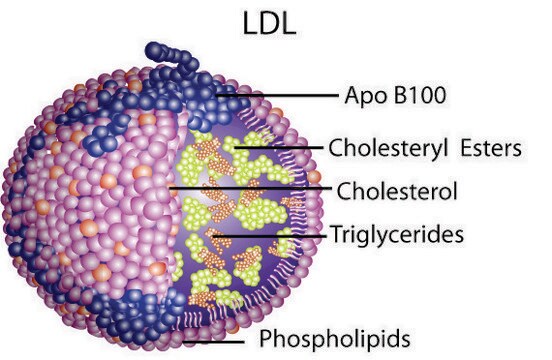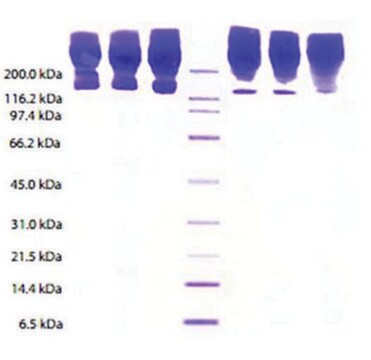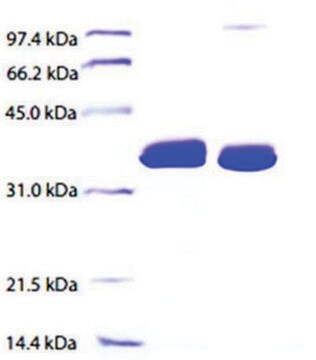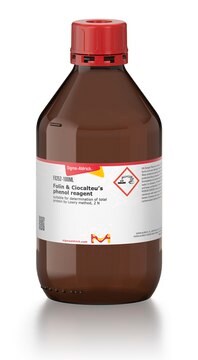A5353
Apolipoprotein B from human plasma
≥95%, lyophilized powder
Synonym(s):
apoB
About This Item
Recommended Products
biological source
human plasma
Quality Level
assay
≥95%
form
lyophilized powder
solubility
soluble (Material is soluble in water)
UniProt accession no.
shipped in
ambient
storage temp.
−20°C
Gene Information
human ... APOB(338)
Looking for similar products? Visit Product Comparison Guide
Application
- The common p.Ile291Val variant of ERLIN1 enhances TM6SF2 function and is associated with protection against MASLD.: This study investigates a variant of ERLIN1 and its role in enhancing TM6SF2 function, highlighting how Apolipoprotein B from human plasma contributes to understanding metabolic-associated liver disease (MASLD) protection (Rendel et al., 2024).
- Blood Lipids, Lipoproteins, and Apolipoproteins With Risk of Coronary Heart Disease: A Prospective Study Among Racially Diverse Populations.: This prospective study evaluates the relationship between blood lipids, lipoproteins, Apolipoprotein B, and the risk of coronary heart disease across diverse populations, providing crucial insights into cardiovascular risk assessment (Deng et al., 2024).
- The genomic landscape of Vk*MYC myeloma highlights shared pathways of transformation between mice and humans.: Research in this paper identifies shared pathways in myeloma transformation between mice and humans, utilizing Apolipoprotein B from human plasma to understand the molecular mechanisms involved in this process (Maura et al., 2024).
Biochem/physiol Actions
Apo-B48 is synthesized in the small intestine. It comprises approximately half of the N-terminal region of Apo-B100 and is the result of posttranscriptional mRNA editing by a stop codon in the intestine not found in the liver. The concentration of Apo-B in normal plasma is ~90 mg/dl.
Physical form
Preparation Note
Disclaimer
signalword
Warning
hcodes
Hazard Classifications
Eye Irrit. 2
Storage Class
11 - Combustible Solids
wgk_germany
WGK 3
Certificates of Analysis (COA)
Search for Certificates of Analysis (COA) by entering the products Lot/Batch Number. Lot and Batch Numbers can be found on a product’s label following the words ‘Lot’ or ‘Batch’.
Already Own This Product?
Find documentation for the products that you have recently purchased in the Document Library.
Customers Also Viewed
Articles
Since cholesterol is a water-insoluble molecule it must be packaged for transport within the plasma. The particles that package cholesterol, cholesteryl esters, and triglycerides for transport, are called lipoproteins.
The potential for the prevention and treatment of cardiovascular disease through increased dietary intake of omega-3 (w-3) fish oils is not a recent scientific discovery.
Our team of scientists has experience in all areas of research including Life Science, Material Science, Chemical Synthesis, Chromatography, Analytical and many others.
Contact Technical Service
